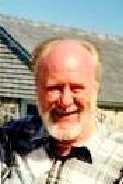Philip Hefner
| Western Philosophy | |
|---|---|
 Philip Hefner, PhD | |
| Fields | Systematic Theology, Philosophy of Religion |
| Institutions | Lutheran School of Theology at Chicago |
| Alma mater |
Ph.D.- University of Chicago 1962 B.Div. Chicago Lutheran Theological Seminary 1959 B.A. Midland Lutheran College 1954 |
| Notable students | Ann Pederson, Anne Kull, Mladen Turk |
| Known for | study of religion/science interaction |
| Influences | Jaroslav Pelikan, Ralph Wendell Burhoe, Henry Nelson Wieman |
Philip Hefner is a professor emeritus of systematic theology at the Lutheran School of Theology at Chicago[1] His research career has focused on the interaction of religion and science, for which he is most well known. Hefner has held several dozen visiting teaching and lecturing appointments at seminaries, colleges, and universities in the United States, Europe, Africa, and Asia. He is an ordained minister of the Evangelical Lutheran Church, and has taught in numerous Lutheran seminaries in America.
In 1988, Hefner was instrumental in bringing to fruition the vision of Ralph Wendell Burhoe by helping to create the Chicago Center for Religion and Science, which later was renamed the Zygon Center for Religion and Science. He was the first director of the center and remained in that capacity from 1988 until 2003, at which point Antje Jackelén succeeded him.[2]
He is the former editor for Zygon: Journal of Religion & Science[3] the leading journal of religion and science in the world. He retired as editor at the end of 2008. Dutch scholar Willem B. Drees was named as his successor at the Journal. Hefner was four times co-chair of the annual conference of the Institute on Religion in an Age of Science (IRAS).[4] In this activity he has been a leader in the discussions there on the evolving paradigm of Religious Naturalism.[5] Hefner is a prominent figure in this emergence belief. It distances itself from traditional religions seeing religious aspects in the world which can be appreciated in a naturalistic framework rather than relying on the supernatural. He is an individualist in his approach to it.[6][7] retrieved 3/30/2011
Hefner writes - “A second alternative response, often identified as “religious naturalism,” is composed of a cross-section of people, many of whom are scientists, who are fashioning a religious worldview that is consistent with their personal outlook and/or free of those encumbrances of traditional religion which they consider conceptually anachronistic and morally dangerous. Religious naturalism is a variety of naturalism which involves a set of beliefs and attitudes that there are religious aspects of this world which can be appreciated within a naturalistic framework.”[8]
Audrey R. Chapman says of him – “Philip Hefner is perhaps the theologian who has grappled the most seriously and explicitly with the evolution of human nature. His approach to this topic, particularly in his work ‘The Human Factor’ is to sacralize the process of evolution….like several other thinkers, Hefner presents a bio-cultural evolutionary paradigm of Homo sapiens…For him, culture is a happening in nature”[9]
Biography
Hefner is a Senior Fellow at the Metanexus Institute where one can find his biography.,[10][11]
The Publications Board of Zygon as established the Philip Hefner Fund to honor the 20 years of outstanding editorial leadership that was demonstrated by Hefner[12]
Works

- Faith and the Vitalities of History: A Theological Study Based on the Thought of Albrecht Ritschl - Harper and Row, 1966
- Changing Man: The Threat and the Promise- Doubleday, 1968
- The Promise of Teilhard - Lippincott, 1970, (with Robert Benne),
- Defining America: A Christian Critique of the American Dream - Fortress Press, 1974
- The Human Factor: Evolution, Culture, Religion - Fortress Press, 1993(Templeton Foundation's Best Books in Religion and Science Award also Good Reads Award)
- Natur-Weltbild-Religion - Bavarian Evangelical Press, Munich, 1995
- Biocultural Evolution and the Created Co-Creator - in Ted Peters (ed.), Science and Theology: The New Consonance - Westview Press, 1998
- When Worlds Converge: What Science and Religion Tell Us about the Story of the Universe and Our Place in It (with others) - Open Court, 2001, ISBN 0-8126-9451-1(Good Reads Award)
- Technology and Human Becoming - Fortress Press, 2003 (Good Reads Award)
- Religion-and-Science as Spiritual Quest for Meaning - Pandora Press, 2008
He translated and edited a volume of Ritschl's shorter writings, Three Essays by Albrecht Ritschl - Fortress Press, 1972. He contributed two essays Creation and Church to the two-volume work, Christian Dogmatics - eds., Carl Braaten and Robert Jenson - Fortress Press, 1984. His 2002 Rockwell lectures, delivered at Rice University, on the theme of the Created Co-Creator were to be published by Trinity International Press.
References
- ↑ Faculty Emeriti retrieved 2-26-09
- ↑ Dr. Hefner directed the Zygon Center retrieved 2-26-09
- ↑ Hefner retirement retrieved ]2-26-09
- ↑ IRAS conferences retrieved 2-26-09
- ↑ Religious Naturalism Discussion Group. retrieved 2-26-09
- ↑
- ↑ Phil Hefner - systematic theologian
- ↑ Zygon: From the Editor
- ↑ Audrey R. Chapman - Unprecedented Choices: Religious Ethics at the Frontiers of Genetic Science, Fortress Press, 1999, ISBN 0-8006-3181-1
- ↑ Hefner Biography retrieved 9-27-12
- ↑ Metanexus Senior Fellow retrieved 9-27-12
- ↑ Philip Hefner Fund retrieved 2-26-09
Further reading
- 2010 – Michael Hogue – The Promise of Religious Naturalism, Rowman & Littlefield Publishers, Inc., Sept.16, 2010, ISBN 0-7425-6261-1
- 2009 – Willem B. Drees - Religion and Science in Context: A Guide to the Debates Routledge; 1 edition, October 16, 2009, ISBN 978-0-415-55617-0
- 2008 – Jerome A. Stone - Religious Naturalism Today: The Rebirth of a Forgotten Alternative, State University of New York Press, December 2008, ISBN 0-7914-7538-7
- 2006 – Loyal Rue – Religion Is Not About God, Rutgers University Press, July 24, 2006, ISBN 0-8135-3955-2
External links
- Zygon: Journal of Science and Religion
- Zygon Center for Religion and Science
- Center for Advanced Studies in Religion and Science (CASIRAS)
- Religious Naturalism Information
- Religious Naturalist
|